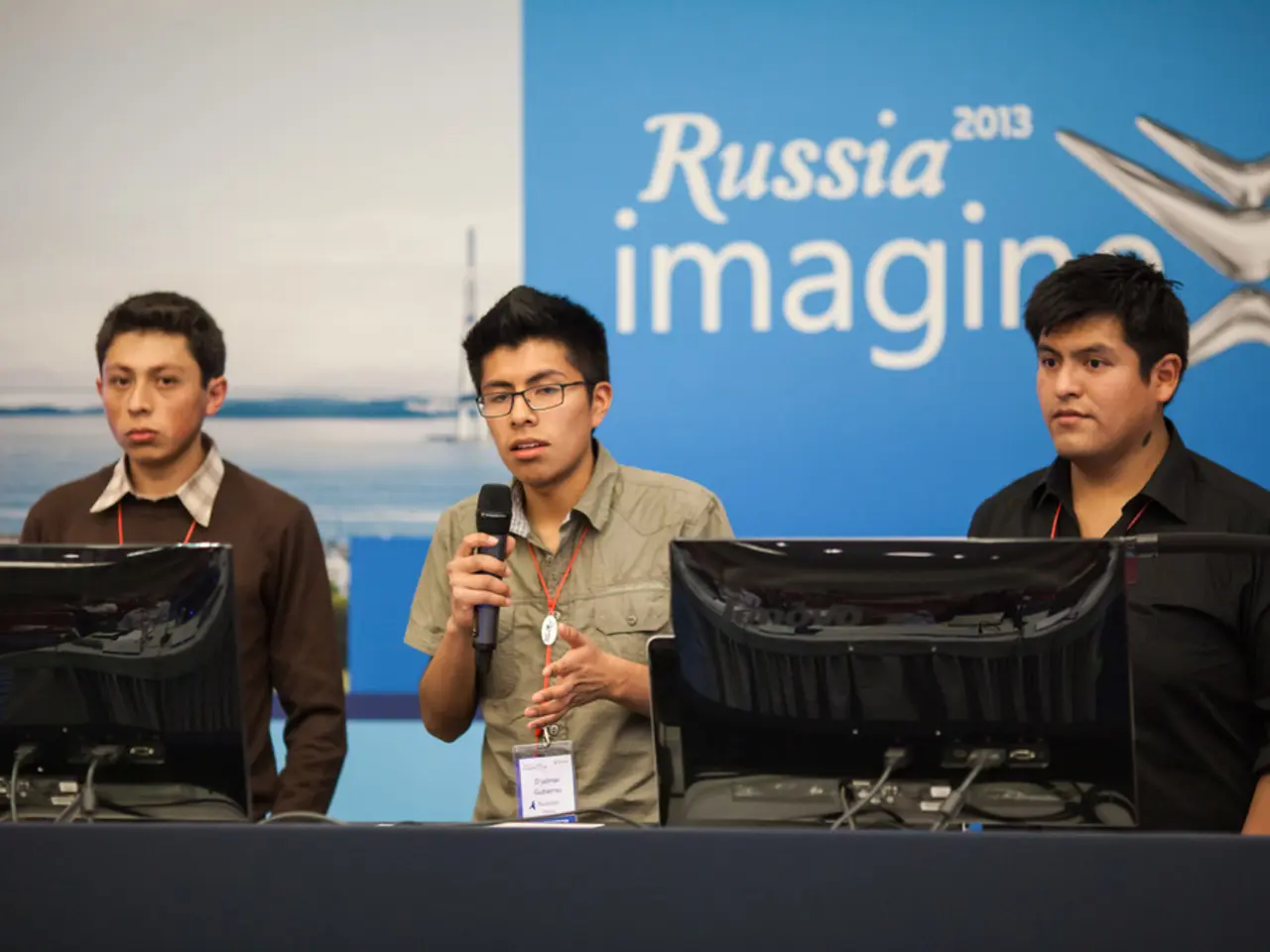"US detention leads to tears held back: Russian dissidents apprehensive about potential deportation"
In the sweltering heat of Louisiana, a woman named Natalia finds herself in a grim situation. She is currently detained in an immigration detention center, far from her home in Russia and her children.
Natalia fled Russia due to fear of arrest for her family's opposition activism. Her family has a history of arrests for anti-government protests and involvement with a banned opposition group. Despite this, a judge denied her request for political asylum in April 2023. She has since filed an appeal.
Days at the detention center are long and difficult for Natalia. She shares a dormitory with about 60 other women, all wearing an orange prison uniform. Showers and toilets are in the same room, offering no privacy or respite from the foul smell. Security guards can throw away her meager belongings or forbid her from using a towel to keep warm during a walk outside.
Natalia knows she needs to live to see the appeal of her political asylum case. However, she is worried about the conditions within the detention center. Some detainees are going hungry and not receiving proper medical care.
Natalia's husband, Yuri, was deported on a commercial flight over the summer, after a year in detention. He was able to get off the plane in Morocco and buy a plane ticket to a third country. Yuri worries that his wife will not have the same opportunity to leave the country.
Tens of thousands of Russians have applied for political asylum in the United States since Russia's invasion of Ukraine in 2022. Nearly 900 Russians, including some asylum seekers, have been deported back to Russia since 2022. US officials declined to comment on recent deportations of Russian citizens.
The U.S. authorities responsible for granting political asylum to Russians are primarily the U.S. Citizenship and Immigration Services (USCIS) and the U.S. Immigration and Customs Enforcement (ICE). USCIS handles asylum applications, while ICE is involved in enforcement and detention actions.
About 85 percent of Russian asylum claims adjudicated last year were approved, but denials have increased in recent months. Another Russian asylum seeker held with Natalia has also lost her case and is awaiting removal.
Natalia does not cry anymore, but her biggest sorrow is not being able to take part in her children's lives. She misses them dearly and hopes for a brighter future, one where she can be reunited with her family.
Read also:
- United States tariffs pose a threat to India, necessitating the recruitment of adept negotiators or strategists, similar to those who had influenced Trump's decisions.
- Weekly happenings in the German Federal Parliament (Bundestag)
- Southwest region's most popular posts, accompanied by an inquiry:
- Discussion between Putin and Trump in Alaska could potentially overshadow Ukraine's concerns







